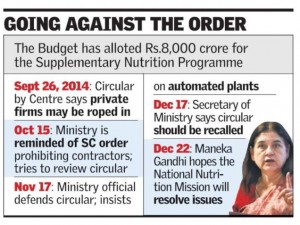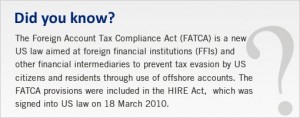IASbaba's Daily Current Affairs Analysis, IASbaba's Daily Current Affairs July 2015, International, National, UPSC
Archives
IASbaba’s Daily Current Affairs- July 9th & July 10th 2015
NATIONAL
Is NJAC a superior alternative compared to the present Collegium system?
- The much debated National Judicial Appointments Commission Act is again in news, on the ground that it would destroy judicial independence and thus violate the basic structure of the Constitution.
- Some experts argue that collegium system was good but its implementation was bad. However there are more pros than cons to the new system of selection of Judges.
Pro NJAC:
- The new judicial appointments act is superior alternative to the collegium system since it raises the consultative process in the selection of judges. The selection of the Judges made jointly by all the constitutional functionaries will help to transcend the concept of primacy between them.
- This integrated participatory consultative process, provides for qualitatively better and more broad-based consultation than the consultation among a few judges as per the collegium system.
- Though there are constitutional functionaries other than the Judges, it does not take away the primacy of the Chief Justice. The judiciary is represented by the Chief Justice and two senior-most judges who have a powerful voice in this body. Their knowledge and expertise are enough to influence the other members and bring them around to their view. If the judges do not approve of a certain name, they can veto it. Once a proposal is vetoed, it cannot be revived.
Way forward:
- There is no question of primacy, be it the executive or legislature or judiciary.
- Judicial independence is not an end in itself. It is also a means to realise a higher objective, namely to find competent, independent-minded judges for India’s higher judiciary. It is not the means to select judges arbitrarily and without any sense of accountability using the power of primacy. The true merit of a judge will become known only through the process of wider consultation. And the new enactment has provided for such consultation.
Background:
Three Judges Cases
The Supreme Court of India’s collegium system, which appoints judges to the nation’s constitutional courts, has its genesis in, and continued basis resting on, three of its own judgments which are collectively known as the Three Judges Cases.
- S. P. Gupta v. Union of India – 1981 (also known as the Judges’ Transfer case)
- Supreme Court Advocates-on Record Association vs Union of India – 1993
- In re Special Reference 1 of 1998
Over the course of the three cases, the court evolved the principle of judicial independence to mean that no other branch of the state – including the legislature and the executive – would have any say in the appointment of judges.
The court then created the collegium system, which has been in use since the judgment in the Second Judges Case was issued in 1993. There is no mention of the collegium either in the original Constitution of India or in successive amendments.
The Third Judges Case of 1998 is not a case but an opinion delivered by the Supreme Court of India responding to a question of law regarding the collegium system, raised by then President of India K. R. Narayanan, in July 1998 under his constitutional powers.
Connecting the dots:
- Does NJAC erode the primacy of Judiciary? What are the other constitutional provisions safeguarding the Independency of Judiciary?
- Relate the concept of ‘Checks & balance’ to the ongoing issue.
- What are the de-merits of Collegium system?
Despite bar, private players continue in nutrition scheme
- Women’s self-help groups, village panchayats and Mahila Mandals are supposed
 to be the agents of change in tackling malnutrition.
to be the agents of change in tackling malnutrition. - To this end, the Supreme Court has banned private players in the Integrated Child Development Scheme (ICDS) aimed at tackling malnutrition among infants and improving the health standards of pregnant women.
Did Ministry misinterpret court orders?
- The Women and Child Development Ministry is still not averse to having private contractors in the Supplementary Nutrition Programme for providing home rations to vulnerable infants in the age group of six months to three years and pregnant and nursing mothers.
- If its circular dated September 26, 2014, to the States is any indication, the Ministry is not averse to roping in private contractors.
What is the Raising Concern?
- Involvement of commercial players in the procurement and supply chain of providing food to children raises concern.
- An e-mail sent to the Ministry went unanswered at the time of writing this report.
- Roughly a little over Rs. 8,000 crore is earmarked for the programme in the Union Budget.
- Barring a few States, notably Kerala and Orissa, the rest continue to rely on contractors.
Connecting the Dots:
- What is the aim of Integrated Child Development Scheme (ICDS)?
- Do you think PPP will enhance effectiveness in the implementation of welfare schemes?
- Write a note on Rapid survey n Children and child Malnutrition.
Corporate espionage: Government issues stringent guidelines to check information leak
- To plug information leak in the wake of corporate espionage case, the Centre has issued stringent guidelines for its departments, making security screening of personnel outsourced from elsewhere mandatory and avoiding doing confidential work on computers with net connection.
What is Corporate Espionage case about?
The sensational corporate espionage scandal is about the leakage of classified documents, including an input for upcoming finance minister’s budget speech.
What created demand for privileged information?
- The documents were generally used by the corporate houses to gain advance information and make suitable changes in their business or legal strategy.
- These were also leaked to the media, if the corporate houses felt the need, to hit out at a rival by manipulating the policy environment.
What are the Recent Guidelines?
- External memory devices must not be connected to the USB drives on these computers
- And that misuse of photocopying machines should be prevented.
- The ministries and departments will ensure that confidential work is not done on computers connected to the internet.
- CCTV cameras can also be deployed judiciously.
Connecting the Dots:
- Are competitive intelligence and corporate espionage related to each other?
- Write a note on the Ethics surrounding the Corporate Espionage Case.
INTERNATIONAL
India, U.S. ink pact on sharing account info
In a step towards curbing overseas tax evasion and black money, India and the U.S. signed an inter-governmental agreement to implement the Foreign Account Tax Compliance Act (FATCA)
Why did India Ink US Foreign Account Tax Compliance Act?
- It reaffirms the government of India’s commitment to fight the menace of black money.
- It is hoped that the exchange of information on automatic basis regarding offshore accounts under FATCA would deter tax offenders, would enhance tax transparency and eventually bring in higher equity into the direct tax regime.
- The signing of tax agreement is an important step forward in the collaboration between the US and India to combat tax evasion.
Will U.S. also share financial information with India?
- As per this inter-governmental agreement under a new US law, Indian financial institutions would have to reveal information about US tax payers to the revenue department which would be passed on to the US tax authorities.
- In turn, the US will also share financial information with India.
IAS BABA’s Views
- FATCA enables ‘automatic’ transfer of information on offshore accounts.
- India and the other G20 countries agreed to automatically exchanging tax information on a reciprocal basis by the end of 2018.
- FATCA is an important part of the US government’s effort to address Tax Evasion issue.
Connecting the dots:
- Write a note on the role of Central Board of Direct Taxes.
- What are the Challenges in implementing the required infrastructure and processes in India?
- What are the Features of Foreign Account Tax Compliance Act (FATCA)?
Did you know?
- The Karur district (Tamil nadu) is all set to lead by example in terms of sanitation and hygiene. The district administration will shortly announce that it has attained the status of the ‘district with toilets in all schools.’
- PM proposed a 10-point initiative for closer cooperation and coordination among BRICS nations.
- Former A P J Abdul Kalam favours abolition of death penalty.









